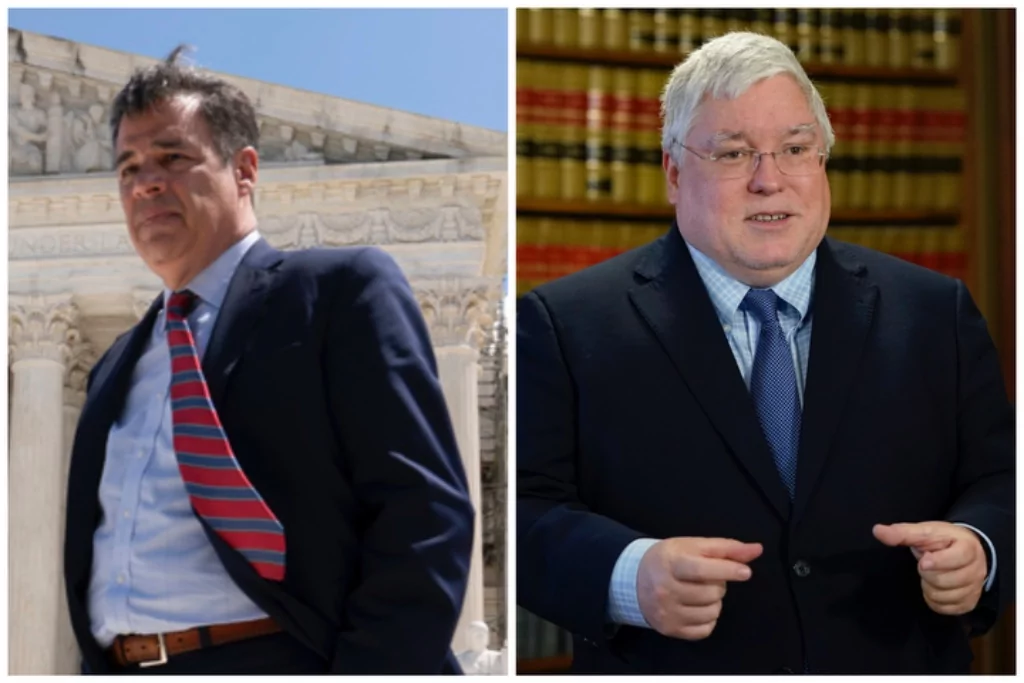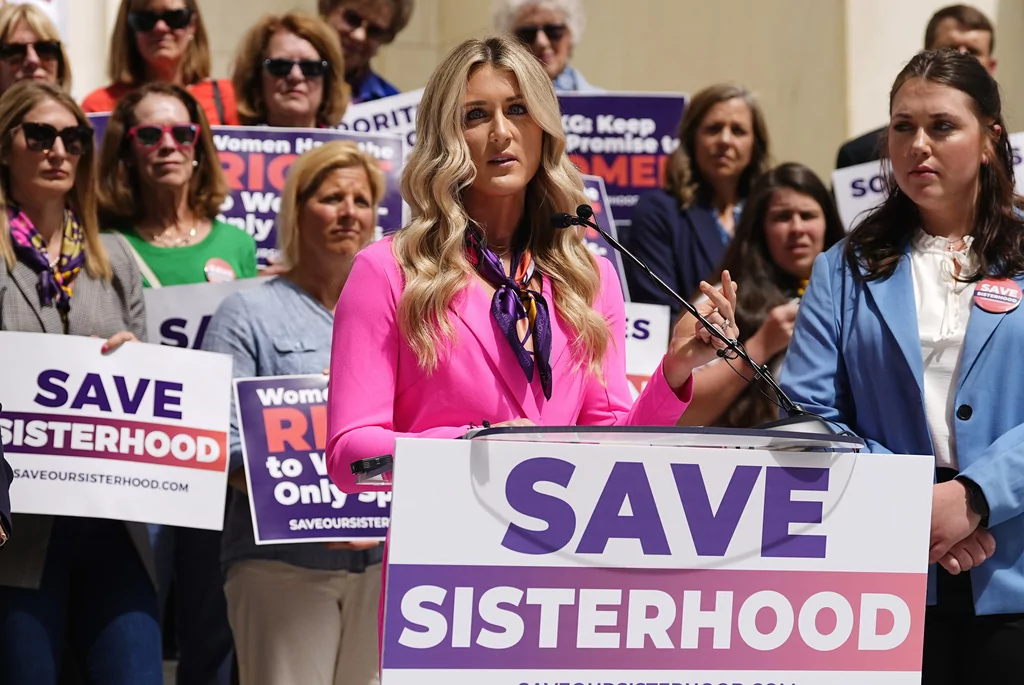
Republican attorneys general in Idaho and West Virginia asked the Supreme Court on Thursday to take up their appeals of lower court rulings that blocked laws that would prevent biological males who identify as female from competing on girls’ sports teams.
Idaho Attorney General Raul Labrador and West Virginia Attorney General Pat Morrisey filed petitions asking the Supreme Court to reverse federal appeals court decisions that blocked their respective states’ laws from going into effect. The states are among 25 in the nation with similar laws on the books.

“We think it’s really a very critical issue for the Supreme Court to take up now,” Morrisey said during a press conference, noting that West Virginia’s law was upheld at the district court level before the U.S. Court of Appeals for the 4th Circuit reversed course.
Southern District of West Virginia Judge Joseph Goodwin, an appointee of former President Bill Clinton who initially enjoined the law in July 2021, wrote in his ruling on Jan. 6, 2023, that “being transgender is natural and is not a choice” but affirmed that “sex is also natural, and it dictates physical characteristics that are relevant to athletics.”
On April 16, the 4th Circuit held in a 2-1 decision that the law cannot be applied to the transgender plaintiff in the case, a biologically male student who has identified as a girl since the third grade.
West Virginia has already gone to the Supreme Court once before to seek intervention after the 4th Circuit’s initial reversal of Goodwin’s decision. On April 6, 2023, the justices declined to lift the state’s injunction, in part because the appeals court had not fully weighed the merits of the case. By refusing to intervene, the justices allowed the male student who challenged the law, Becky Pepper-Jackson, to maintain a place on the school’s female track and cross-country teams.
Labrador and Morrisey contend that the laws are aimed at preventing real harm to girls in school sports programs.
Laney Armistead, a former championship-winning athlete at West Virginia State University, chose to become a party in the West Virginia case on behalf of herself and other female athletes, saying groups such as the American Civil Liberties Union’s defense of Pepper-Jackson threatens her ability to compete fairly. The contested laws have also been championed by former collegiate swimmer Riley Gaines, who began her work after tying for fifth place with Lia Thomas, the first biological male to compete in an NCAA women’s swimming event.

“This is an issue that unites people across partisan lines, political lines, gender ideology,” Labrador said at the press conference alongside Morrisey.
Idaho’s law, known as HB 500, also faced setbacks after Gov. Bradley Little (R) became the first state leader in the nation to enact a measure prohibiting transgender athletes from competing on female sports teams. The U.S. Court of Appeals for the 9th Circuit found that a federal district court did not abuse its discretion when it preliminarily enjoined the law in 2020, and also found the law likely violated the equal protection clause of the 14th Amendment.
Both states are hoping the Supreme Court will also use the cases to consider whether the Biden administration’s recent revisions to the federal Title IX rule, which expands the definition of sex to incorporate transgender identities, is constitutional.
“Because we believe that they have made profound errors in their interpretation of Title IX and interpreting the equal protection laws,” Morrisey said of the Supreme Court petition.
CLICK HERE TO READ MORE FROM THE WASHINGTON EXAMINER
The Supreme Court receives thousands of petitions each year and typically only grants a small percentage of the cases brought before them.
The justices could decide as late as this fall whether to consider these cases on the merits. They have already agreed to consider a lawsuit against Tennessee’s ban on transgender hormone treatment and surgeries for minors, a case that asks whether the law violates the equal protection clause of the 14th Amendment.





